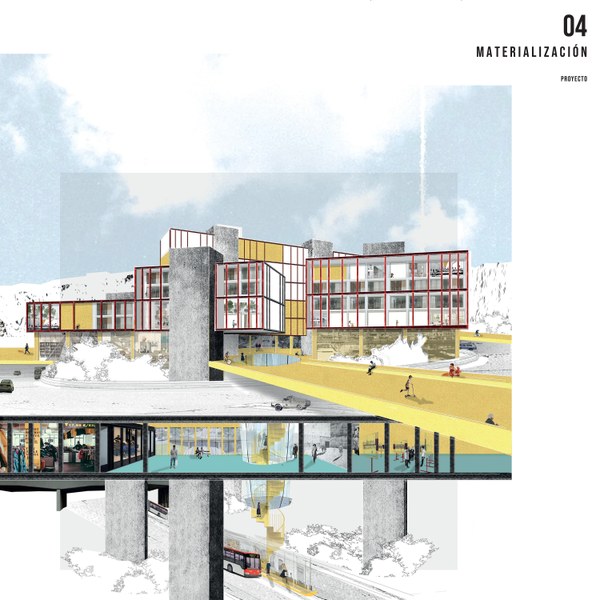Infraestructure RRR
Professors
Carme Ribas Seix Antón Salvadó Cabre
Classrooms
A-34, A-35
Timetable
Tuesday 17:00 - 20:00 Thursday 15:00 - 18:00
Introduction
After four years of career in which the workshops have trained the student to respond to situations enunciated by the teachers, this workshop aims to promote the student's ability to ask questions in order to derive concrete statements of work on urban scenarios and transforming architectures. It is understood that the basic tools of the architect have been developed during the previous courses (inevitably directed from well defined demands) and now is the time to immerse the student in the real complexity of decision-making about our environment. It is time to open the focus and incorporate other perspectives (often coming from other professional fields or even from non-professional groups) to exercise the student in a job much closer to the one he will find in his future professional life.
The main aim of the workshop is to develop skills that will put the architect at the centre of the debate on the future of cities. In fact, we are addressing those architects who will work for/for the Public Administration, those who will be part of multidisciplinary teams destined to reflect on the future of our cities or those who will act as consultants to citizen collectives, to give some examples.
In these working environments, in which they will be dedicated to sharing the debate with other professionals and urban agents, architects must be able to contribute as their own tool the ability to rehearse, shape and spatially locate everything that is proposed. The ability to create discourse and establish urban strategies based on the drawing of the city will be exercised, in order to learn how to produce transmissible statements. That is, knowing how to correctly pose the questions, argue them and illustrate them through the project as a tool, allowing to visualize formally and spatially what is being proposed.
The relationship between form and activity will be worked, one of the main objectives of this workshop is the development of the capacity to formulate programs for the identified areas of transformation.
Attention will be paid to the construction and reconstruction of the public strata that link the different urban activities, modifying existing structures and proposing new ones, in order to influence the possibilities of the frank interrelationship between different urban strata, so present in the contemporary debate on reducing the ecological footprint and energy management.
All this will be done on the basis of the debate on the future of inherited infrastructures and their capacity to be recycled, with a clear commitment to the reformulation of mobility and the need to make cities more resilient to climate change, starting from their capacity to provide solutions for the production of renewable energies and to contribute to the improvement of the environmental quality of the city.
Obviously, rehabilitation and recycling will be very present throughout the course, since the whole argument is based on the inherited city and the future vocations of obsolete structures, spaces and buildings.
One of the primary objectives of this workshop is to build a responsible awareness with the environment, when considering the future of our cities. Work will be done on recycling, energy commitment and the ecological footprint produced by new buildings.
It is intended that the students know or have the resources to know where to go when it comes to making their proposals technically feasible. Or conversely, based on the knowledge that technology provides, they can develop realistic and viable proposals for transforming our urban environments.

Share: